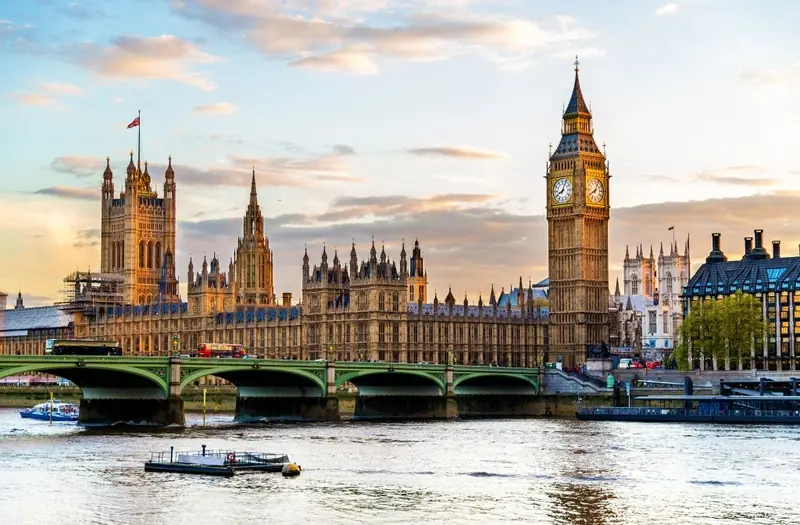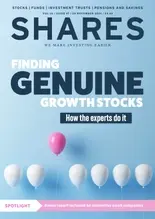
- Personal thresholds to rise from 2028
- Capital gains and carried interest tax to rise
- Employers’ NI bill to rise significantly
In terms of lowering expectations among the business community, the Labour party did a good job heading into today’s autumn statement by letting slip potentially negative information such as the intention to raise employers’ NI (National Insurance) contributions and a hike in the minimum wage.
The everyday ‘working person’, on the other hand, has been primed to expect taxes via the back door including an extended freeze of the personal allowance to 2030, changes to CGT (Capital Gains Tax) and IHT (Inheritance Tax) and possibly some tinkering with ISAs and pensions.
WHAT DID THE CHANCELLOR SAY?
First, the freeze on personal allowances won't be extended by two years but will rise in line with inflation from the start of the 2028 tax year, reducing the number of people who are pulled into a higher tax bracket through ‘fiscal drag’.
Second, CGT will rise, with the lower rate increased from 10% to 18% and the higher rate going from 20% to 24%, presumably from next April.
Third, IHT rates will be frozen 2030 from 2028 previously, meaning the first £325,000 of assets remain tax-free rising to £500k if they include a residence and £1 million when the tax-free allowance passed to a surviving spouse or partner – but, inherited pensions will be brought into the IHT regime from April 2027 and Business Property Relief will be ‘reformed’.
There was good news for those receiving or due to receive a pension, with a renewed commitment to the ‘triple lock’ meaning the basic and new state pension will rise by 4.1% in 2025/2026, which translates into an extra £470 per year for 12 million pensioners.
There was also good news for drivers, with the 5p per litre cut in fuel duty brought in by the Conservatives staying, although for smokers the tobacco duty escalator was renewed at 2% and there was a 10% increase in duty on roll-your-own tobacco, while vaping liquids will attract a flat-rate duty from April 2026.
IMPACT ON BUSINESSES
As was widely forecast, employers’ NI contributions are set to rise, by 1.2% from 13.8% to 15% from next April, and the threshold at which businesses start paying NI has been cut from £9,100 to £5,000.
This measure is expected to raise £25bn per year by the end of the forecast period and is crucial to getting the economy back on an even keel according to the Chancellor, but it won’t be popular with many firms.
For North Sea oil and gas companies, the windfall tax on profits will increase to 38% up to March 2030, and the 29% investment allowance will be scrapped ‘to ensure the industry can protect jobs and support the UK’s energy security’.
On infrastructure, the HS2 high-speed rail project has been saved with funding secured to begin tunnelling work to London Euston while the Trans-Pennine upgrade to connect York, Leeds, Huddersfield and Manchester is safe as is the East-West Rail project to link up Oxford, Milton Keynes and Cambridge.
For the retail and hospitality sector, the current 75% discount to business rates – due to disappear next April – has been replaced with 40% relief up to a maximum discount of £110,000 from April 2025, although as the BBC pointed out it means many businesses will see their rates nearly double rather than quadruple.
The hospitality sector may also cheer the fact that while alcohol duty will rise in line with the RPI (retail price index) from next year, draft duty is set to fall by 1.7% which is 1p off the price of a pint in a pub.
MARKET REACTION
Pub operators rallied on the news with Marstons (MARS), JD Wetherspoon (JDW) and Mitchells & Butlers (MAB) jumping 6.4%, 3.5% and 3.6% respectively.
Housebuilders were also higher with Persimmon (PSN), Taylor Wimpey (TW/) and Crest Nicholson (CRST) gaining around 3% a piece.
Gambling groups Entain (ENT) and Flutter Entertainment (FLTR) gained more than 7% each. Infrastructure firms linked to the building of HS2 also gained with Costain (COST) trading 4% higher.
Looking more broadly across asset markets the UK 10-year gilt yield barely moved during the Budget speech but has since moved higher to around 4.3% while sterling reversed a slight fall to trade back above $1.30 against the US dollar.




